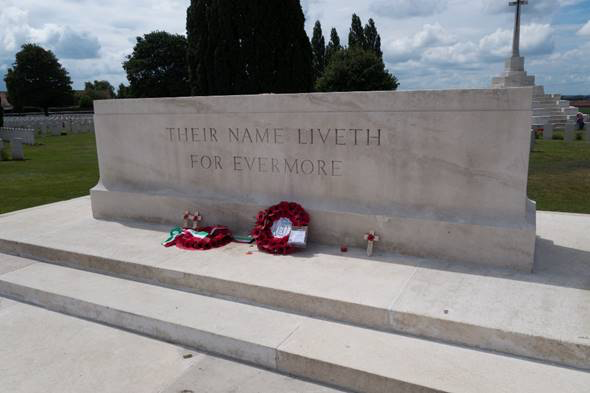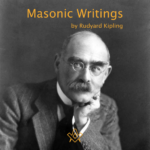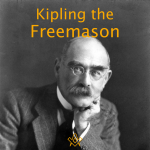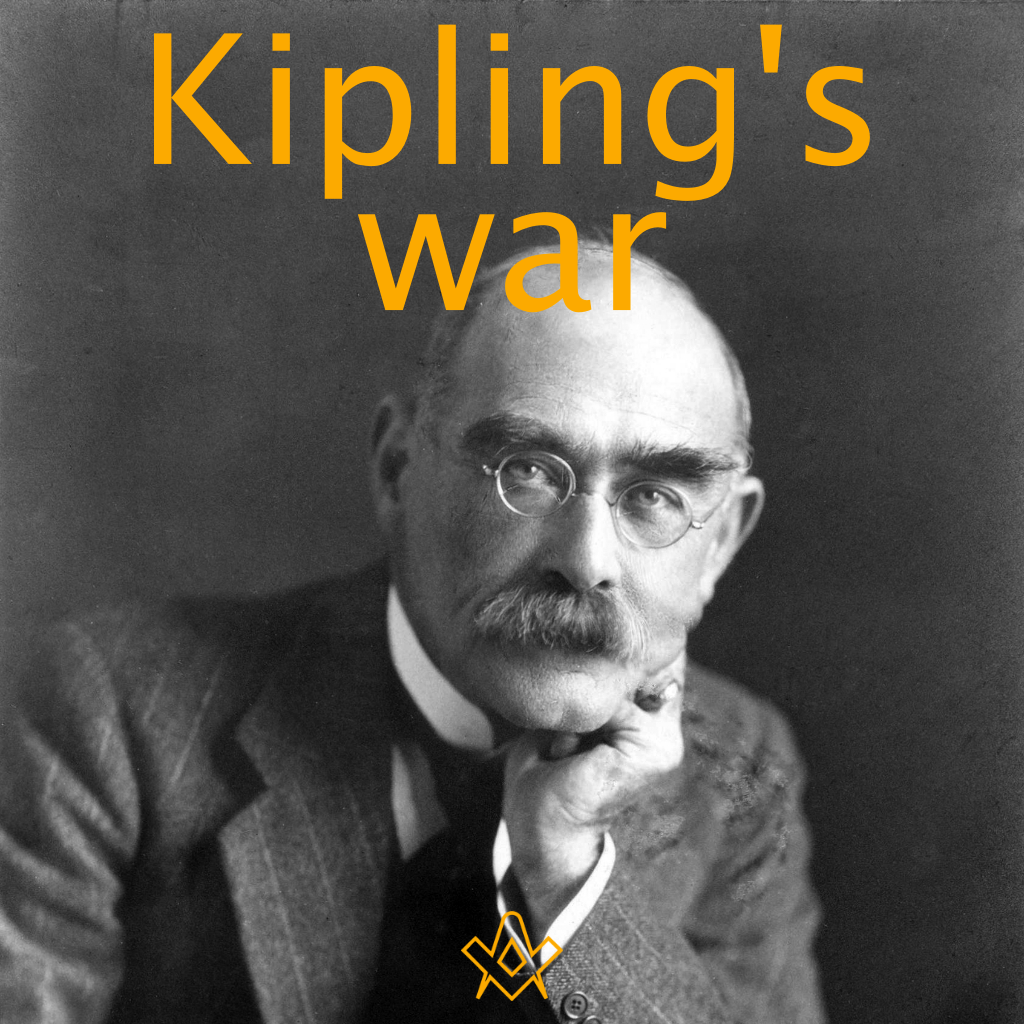
Kipling’s critics are quick to include him as one of the ‘fathers’ who ‘lied’ – echoing his short poem ‘Common Form’ – ‘If any question why we died, Tell them, because our fathers lied’.


My Boy Jack – 2nd Lt John Kipling – By Unknown – Rudyard Kipling Papers, University of Sussex
IMAGE LINKED: wikimedia Attribution 4.0 International (CC BY 4.0)
MY BOY JACK
1914-1918
“HAVE you news of my boy Jack? “
Not this tide.
“When d’you think that he’ll come back?”
Not with this wind blowing, and this tide.
“Has any one else had word of him?”
Not this tide.
For what is sunk will hardly swim,
Not with this wind blowing, and this tide.
“Oh, dear, what comfort can I find?”
None this tide,
Nor any tide,
Except he did not shame his kind—
Not even with that wind blowing, and that tide.
Then hold your head up all the more,
This tide,
And every tide;
Because he was the son you bore,
And gave to that wind blowing and that tide.
Unlike the other War Poets such as Wilfred Owen and Siegfried Sassoon, Kipling did not serve.
However, much of the anguish he poured into his poems surrounding the Great War, came from his grief, never assuaged, by the loss of his son John, who was killed at Loos in 1915.
This grief was compounded by two factors; one was the fact that Kipling had encouraged and enabled his son to enlist and the other was a situation common to innumerable families of fallen soldiers, the lack of crucial information about the death of their loved one and the heart-breaking absence of a body.
Kipling’s critics are quick to include him as one of the ‘fathers’ who ‘lied’ – echoing his short poem ‘Common Form’ – ‘If any question why we died, Tell them, because our fathers lied’.
Kipling has long been viewed as a propagandist and supporter of war but that was perhaps merely a product of his passion for his country and his immense capability to express almost every aspect of the human condition.
He wrote, not only as a journalistic commentator but as a father, a common man and as something that compounded his guilt over the waste of his son’s and millions of other son’s lives – a survivor.
He had an empathetic ability to convey both the horror and the glory of the battlefield and beyond – he understood the devastation that life and death in the trenches did to the exhausted, embittered and hopeless minds of those who returned shell-shocked and broken.
‘I was entered by a Hindu, raised by a Mohammedan, and passed by an English Master, but never rose beyond the office of Secretary.’
In 1917 Kipling joined the Imperial War Graves Commission which aimed to register the British war dead, construct permanent cemeteries and memorials and ‘cultivate images of sacrifice, equality, and unity in the developing British collective memory of the Great War’.
Shortly after, he published a short story in the Story-Teller entitled ‘In the Interests of the Brethren’, in which he wrote of a Masonic lodge of wealthy men, which had thrown convention to the wind and allowed access to soldiers on leave, regardless of their status and physical condition to be welcomed into a safe haven of camaraderie and perhaps more importantly, decent food.
This strongly echoed Kipling’s own attraction to Freemasonry – the equality, the social mix and the ability to allow discourse and understanding of each other regardless of class or distinction.
This of course was also evident in his seminal poem ‘The Mother Lodge’, which reflected his initiation into Hope and Perseverance No. 782 in Lahore in 1886, of which he wrote:
‘I was entered by a Hindu, raised by a Mohammedan, and passed by an English Master, but never rose beyond the office of Secretary.’
The fictional lodge in ‘In the Interests of the Brethren’ would be revisited in three later stories and further reiterated the narrative of soldiers finding refuge and being able to share their, often horrific, memories.

‘Their Name Liveth For Evermore’
IMAGE LINKED: Photo: Thom Quine, Flikr Attribution 2.0 International (CC BY 2.0)
Kipling, aside from his prolific writings can be remembered for his contribution to the remembrance of those who served and/or died during those terrible years of the Great War.
He was instrumental in the literary inspiration behind some of the inscriptions that remind us of the Great Sacrifice of millions of men.
The Commission felt that monuments should be uniform in appearance and maintenance and should eschew any symbolism of wealth, race, religion or privilege – for all had died for a common cause.
The Stone of Remembrance evolved from this vision and would honour rich, poor, Jews, Christians, Muslims, Hindus and all those who served together.
Designed by Sir Edward Lutyens and based on the premise of the Paleolithic symbol of altar and sacrifice.
The inscriptions similarly followed a purposely ambiguous theme and perhaps the one we all remember – and should continue to remember – is Kipling’s choice of ‘Their Name Liveth for Evermore’.
If any question why we died,
Tell them, because our fathers lied.
– Kipling, ‘Common Form’
Article by: Philippa Lee. Editor

Philippa Lee (writes as Philippa Faulks) is the author of eight books, an editor and researcher.
Philippa was initiated into the Honourable Fraternity of Ancient Freemasons (HFAF) in 2014.
Her specialism is ancient Egypt, Freemasonry, comparative religions and social history. She has several books in progress on the subject of ancient and modern Egypt. Selection of Books Online at Amazon

The Works Of Rudyard Kipling
This work has been selected by scholars as being culturally important and is part of the knowledge base of civilization as we know it.
This work is in the public domain in the United States of America, and possibly other nations. Within the United States, you may freely copy and distribute this work, as no entity (individual or corporate) has a copyright on the body of the work.
Scholars believe, and we concur, that this work is important enough to be preserved, reproduced, and made generally available to the public. To ensure a quality reading experience, this work has been proofread and republished using a format that seamlessly blends the original graphical elements with text in an easy-to-read typeface.
We appreciate your support of the preservation process, and thank you for being an important part of keeping this knowledge alive and relevant.
Recent Articles: by Kipling
 ‘ONCE in so often,’ King Solomon said, Watching his quarrymen drill the stone… |
 When I was a King and a Mason, a Master Proven and skilled, |
 Every man must be his own law in his own work, but it is a poor-spirited artist in any craft who does not know how the other man’s work should be done or could be improved. |
 Rudyard Kipling's deep connection with Freemasonry is evident in many of his poems and his stories |
 Kipling's In the Interests of the Brethren Short story by Rudyard Kipling |
 Kipling’s critics are quick to include him as one of the ‘fathers’ who ‘lied’ – echoing his short poem ‘Common Form’ – ‘If any question why we died, Tell them, because our fathers lied’. |
 Kipling's interest in Freemasonry is easily recognised in much of his work and examples are too numerous for one article. |
masonic knowledge
to be a better citizen of the world
share the square with two brothers

click image to open email app on mobile device










